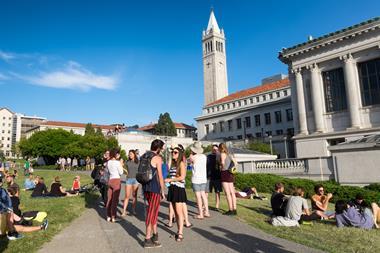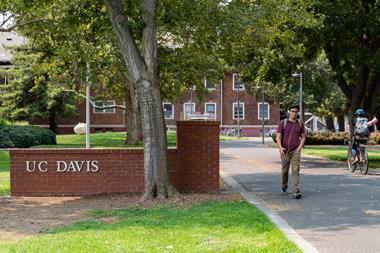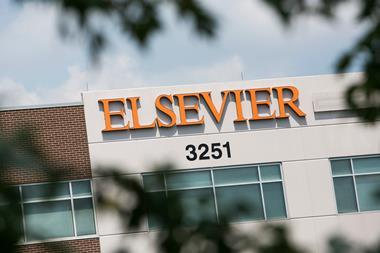Staff and students at the University of California are waiting to find out when Elsevier will cut off access to its journals, after the university ended its contract with the publishing giant. The university says negotiations to renew a contract across its 10 campuses broke down because Elsevier refused to agree to universal open access for the institutions’ research and to lower the costs of journal subscriptions. Rumours are circulating that some academics will no longer review for Elsevier and a petition has been started by a University of California researcher calling for a boycott of the publishing giant.
Ivy Anderson, associate executive director of the University of California’s digital library (CDL) and co-chair of the negotiating team, says ‘they did offer a path to increase open access, but with a significant increase in costs overall. Our goal is to repurpose current expenditure, not increase it.’ The university wanted Elsevier to integrate the cost of subscriptions to its journals and article processing charges – currently between $150–$5000 (£114–£3800) per article – for publishing papers open access into a single fee. But they calculate that 100% open access would have cost the university $10 million a year, on top of subscriptions, which have been rising year-on-year.
Last year universities banded together in Germany, as well as Sweden and Hungary, but also failed to reach agreement with Elsevier over the same demands for a publish and read deal. The University of California is responsible for almost 10% of all US publishing output and is the first US institution to cancel its Elsevier subscription over open access.
Just 6% of researchers at the university currently pay to publish open access in Elsevier journals, which Anderson estimates costs around $1 million a year. Non-disclosure agreements mean universities can’t reveal what they pay for journal subscriptions, but a freedom of information request made by a University of California academic revealed it paid over $10.5 million last year in subscription and open access publishing fees.
Tom Reller, Elsevier’s vice president for global communications, tweeted that the university had mischaracterised Elsevier’s stance, and that it had ‘put forward a unique model that supports CDL’s multi-payer open access request’. He said students and researchers at the University of California’s campuses download Elsevier articles nearly one million times a month, and he hoped ‘we can bridge this divide with them soon’.
Elsevier's response to the UC announcement today. pic.twitter.com/NgK3iuYedd
— Tom Reller, Elsevier (@TomReller) February 28, 2019
Jeffrey Mackie-Mason, who heads the University of California, Berkeley’s library and is also co-chair of the university’s negotiating team, says Elsevier hadn’t indicated when access to its new publications will cease, but the focus was now on ‘helping students and faculty get access to 2019 publications, through alternative, legal channels’. His team is also talking to peers at other universities who have asked for advice on their open access stance. While Anderson says it has left the door open to Elsevier, ‘it’s important to us to take a stand to change the dynamics at both [the University of California] and the entire industry’.

















No comments yet